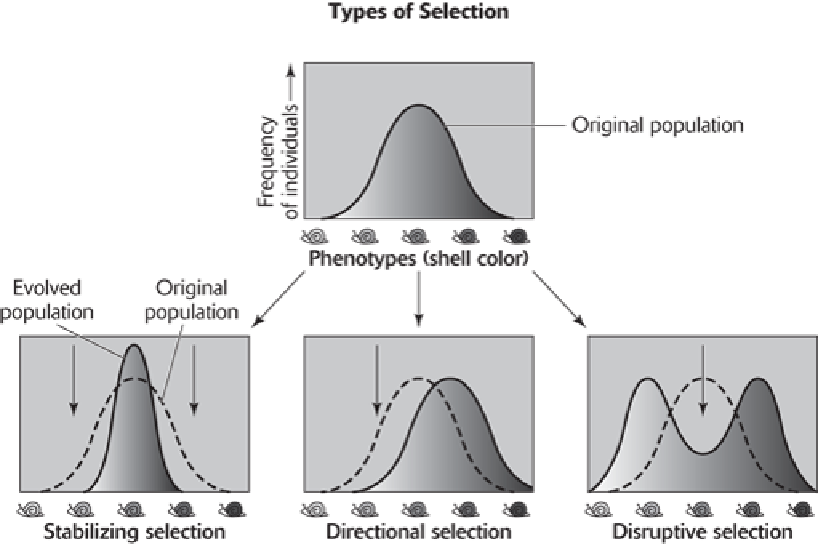Environmental Engineering Reference
In-Depth Information
lowing increases in pollution from the Industrial Revolution, the species shifted and darker moths be-
came more abundant than lighter individuals.
Speciation
Speciation
is the process by which new species are created. This process can occur in many ways but two are
common: allopatric and sympatric.
Sympatric speciation
occurs when similar organisms live within the same
location but fulfill different niches; therefore, they do not mate and reproduce. The most common way speci-
ation occurs is through
allopatric speciation
, when a new species is created over time because of a physical
separation of a population. Separation can result from physical changes such as:
• Formation of mountain ranges
• Rivers changing course
• Habitat fragmentation
• Advancement of glacial ice sheets
• Alteration of climate in a region
• Shift of ocean currents
• Formation of islands from volcanism
When a physical division takes place parts of a population are separated. As a result, the divided population
can no longer reproduce with each other because of geographic distance. Over time each population develops
and passes on new and different mutations. Given enough time, a new species may form because of the genetic
variations in the populations. If at some point in time these different populations would reunite, they would no
longer be able to interbreed. Speciation has occurred.

